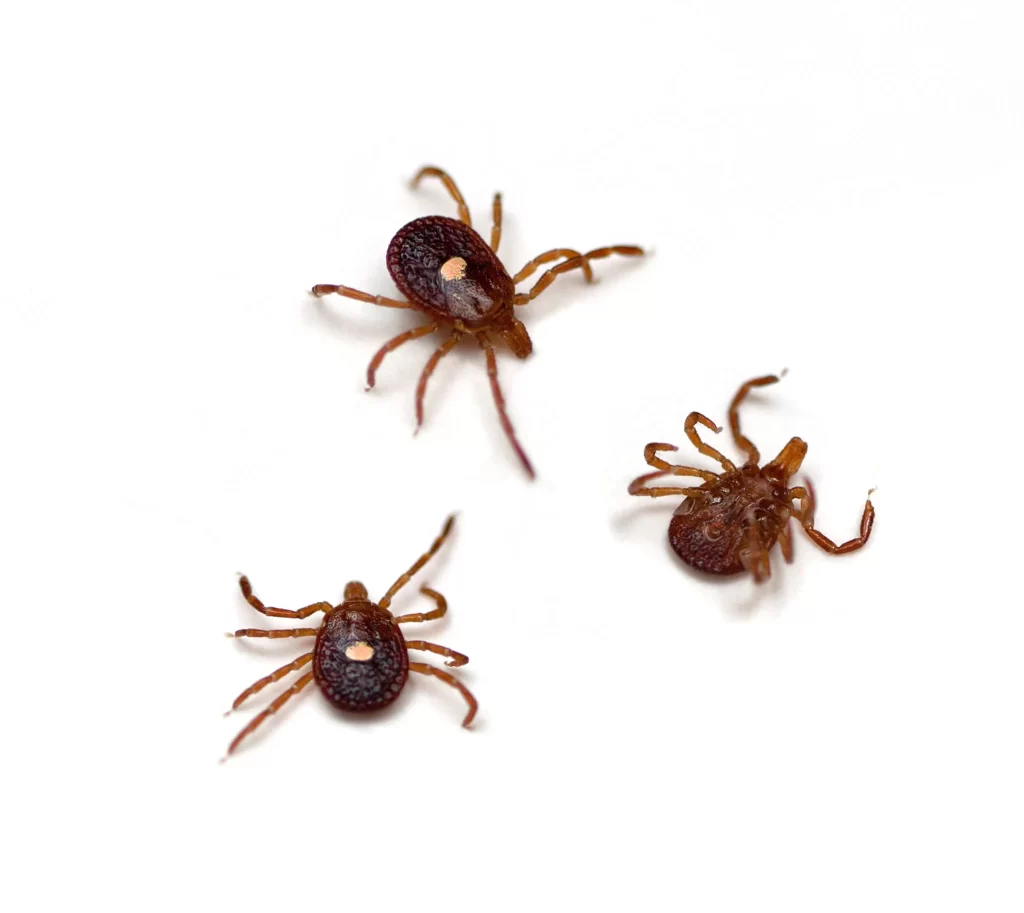We all know ticks can transmit diseases like Lyme to humans and animals through their bites. However, scientists have recently uncovered a perplexing connection between tick bites and the development of a strange allergy to red meat. The CDC reports that 450,000 Americans may be affected by the Alpha-gal syndrome-the name for this allergy, but this estimate may not reflect the genuine number of cases due to many instances remaining undiagnosed, often because many healthcare providers do not know what this allergy is and how to treat it. A study by the CDC in 2022 stated that only 5% of the 1500 healthcare providers surveyed across the country, including family practitioners, pediatricians, nurse practitioners, and physician assistants, reported that they were “very confident” in their ability to diagnose and manage patients with Alpha-gal Syndrome (AGS). As the number of cases increases, AGS is becoming a public health concern that clinicians and the general public should be knowledgeable about.
Understanding the Allergy and its Connection with Ticks
So what exactly is this new allergy, and how do ticks transmit it? To understand that, we must first understand Alpha-gal. Alpha-gal is a sugar found in most mammals (cows, pigs, lambs, rabbits), and the products made from these animals (gelatin, milk products. An important thing to note is that it is not found in humans.
The lone star tick – named after a white spot resembling the state of Texas found on the female’s back – is identified as the primary carrier of AGS. To begin with ticks first bite mammals like cows or pigs that contain Alpha-gal sugar. When a tick bites a human because humans do not have this sugar, the immune system perceives it as foreign and creates antibodies against it, found in red meat and other products. Subsequently, when the affected person consumes red meat or other products with Alpha-gal, an allergic reaction occurs. This is how the ticks create a meat allergy by transmitting the sugar from one mammal to another.
Though the lone star ticks are found commonly in the eastern, southeastern, and midwestern U.S., they’re quickly expanding their local populations north and west due to climate change. In fact, Alpha-gal syndrome has been diagnosed in parts of Europe, Australia, Asia, South Africa, and South and Central America, mostly in wooded and high-grass areas. AGS can affect anyone, with cases often involving adults.
Symptoms and Diagnosis
Apart from meat allergy, AGS could also trigger a reaction to medications and other treatments. For example, allergic reactions to the cancer treatment cetuximab (Erbitux®) and medicine like acetaminophen (Tylenol) have been linked to AGS. Symptoms occur two to six hours after eating products with Alpha-gal. Symptoms include:
- Skin reactions (Hives, itchy skin, rash)
- Gastrointestinal Issues (Heartburn, indigestion, muscle cramps, Diarrhea)
In rare cases, AGS could also trigger cardio-pulmonary symptoms:
- Anaphylaxis (life-threatening breathing restriction due to allergic reactions)
- Heart palpitations
- Hypotension
Diagnosing Alpha-gal syndrome can be challenging since its symptoms can mimic other allergies. Thus, doctors often use a combination of patient history, physical examinations, and specialized blood tests to identify specific Alpha-gal antibodies (immunoglobulin-E antibodies) and confirm the diagnosis.
Prevention and Treatment
Unfortunately, there is currently no cure for Alpha-gal syndrome. Those diagnosed with the condition must avoid mammalian meat and products containing these meats as ingredients, such as gelatin, certain medications, and even certain cosmetics, to prevent allergic reactions.
Because there is no treatment, prevention is imperative! To protect yourself from AGS:
- Wear long sleeves and pants when walking in wooded or grassy areas
- Use the U.S. Environmental Protection Approved (EPA)-approved insect repellents.
- Clear your yard of tick-friendly habitats, such as tall grass and leaf litter.
Remove ticks with tweezers, and apply antiseptic to that area.
As more cases and research sheds light on the underlying mechanisms, medical professionals and the public can work together to minimize the risk and impact of Alpha-gal Syndrome. Raising awareness about this unique allergy and its link to tick bites and adopting preventive measures will be vital to protect public health and ensure a safer outdoor experience for all. Remember to take the necessary precautions and stay safe!
Works Cited
“Alpha-gal Syndrome | CDC.” Centers for Disease Control and Prevention, 28 July 2023, www.cdc.gov/ticks/alpha-gal/index.html.
“Alpha-gal Syndrome – Symptoms and Causes – Mayo Clinic.” Mayo Clinic, 15 Nov. 2022, www.mayoclinic.org/diseases-conditions/alpha-gal-syndrome/symptoms-causes/syc-20428608.
“Alpha-gal Syndrome Has Afflicted Thousands; CDC Says 42% of Doctors Have Never Heard of It.” NBC News, 27 July 2023, www.nbcnews.com/health/health-news/alpha-gal-syndrome-red-meat-ticks-lone-star-rcna96636.
Anthes, Emily. “A Half-Million Americans May Have Tick-Linked Meat Allergy, C.D.C. Says.” The New York Times, 27 July 2023, www.nytimes.com/2023/07/27/health/alpha-gal-ticks-meat-allergy.html.
Carpenter, Ann. “Health Care Provider Knowledge Regarding Alpha-gal Syndrome — United States, March–May 2022.” Centers for Disease Control and Prevention, July 2023, https://doi.org/10.15585/mmwr.mm7230a1.
Professional, Cleveland Clinic Medical. “Alpha-gal Syndrome.” Cleveland Clinic, my.clevelandclinic.org/health/diseases/24493-alpha-gal-syndrome.
